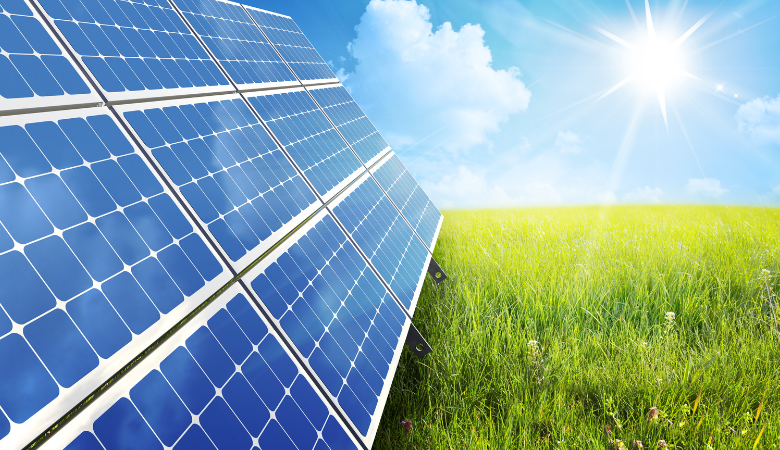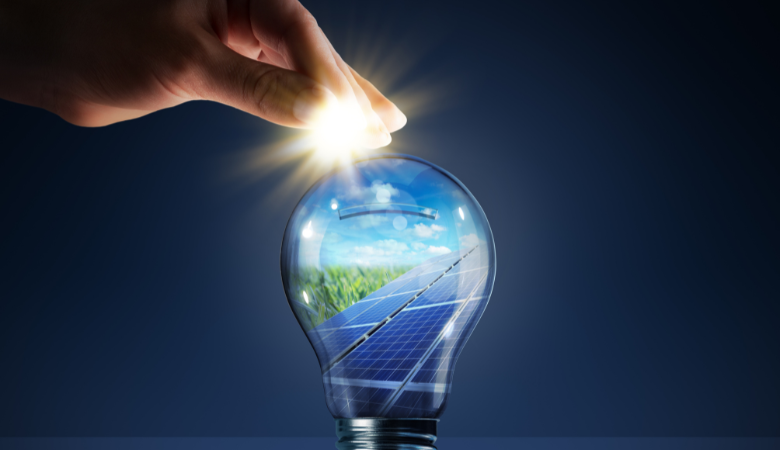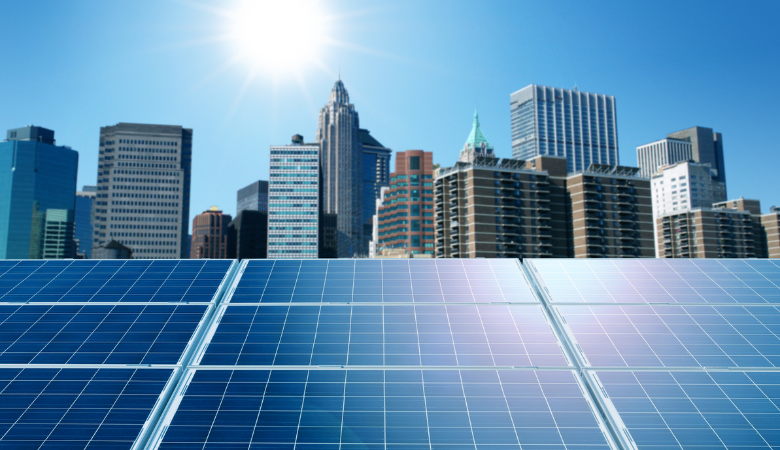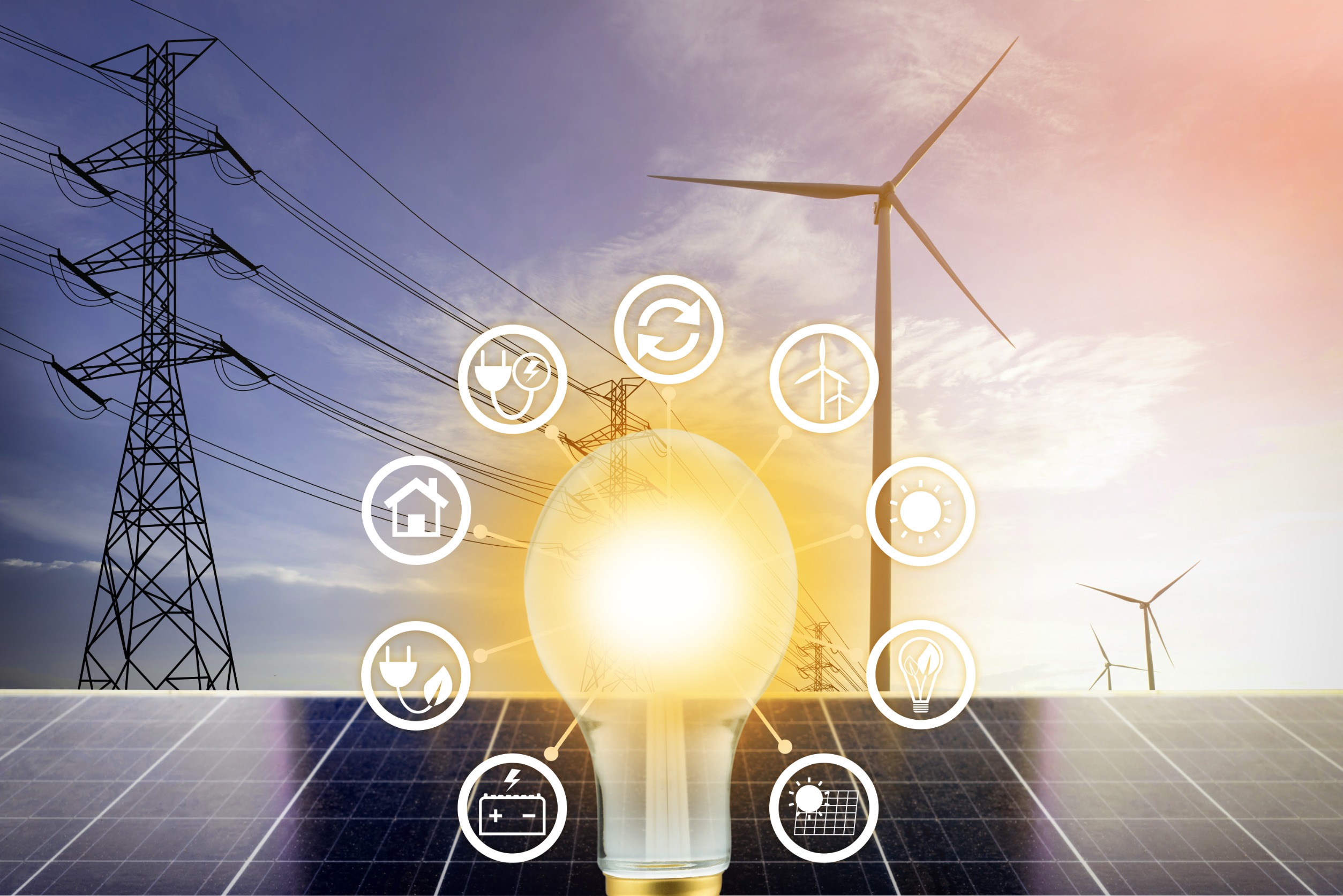Join us as we explore this fascinating topic and illustrate the power of harnessing the sun’s energy through advanced storage solutions.
What is Energy Storage and How Does It Work
Energy storage, as the term implies, is a system designed to store energy produced by your solar panels for later use. It primarily involves the use of a solar battery, which captures and contains the electricity generated by the solar energy panels during the day. This stored energy can then be used during the evening, when the sun isn’t shining, or during a power cut.
The workflow of a solar energy storage system can be broken down into four essential steps:
- Energy Collection: During daylight hours, solar panels absorb sunlight and convert it into electricity. This process is known as photovoltaic energy generation.
- Energy Conversion: The electricity produced is direct current (DC) which needs to be converted into alternating current (AC) for use in most homes. This conversion is carried out by an inverter.
- Energy Storage: Any excess electricity that’s not immediately used is directed to the solar battery. Here, it’s stored for later use, instead of being sent back to the power grid.
- Energy Utilization: When the solar panels aren’t producing electricity (for example, during the night or on very cloudy days), the stored energy in the battery can be drawn upon to power the home.
The Benefits of Using Energy Storage for Solar Power Users

- Maximizing Solar Energy Usage: As a renewable energy company near me, we ensure you get the most from your solar panels by storing excess energy. You can use it when the panels aren’t generating power, thus reducing dependence on the grid.
- Energy Independence: Having an energy storage system allows you to become more self-sufficient and less reliant on utility companies. It’s a step forward in your quest for energy independence.
- Lower Energy Costs: Storing surplus power generated during peak sunlight hours for use during expensive peak demand times can result in significant savings on your energy bills.
- Emergency Backup Power: An energy storage system can provide essential power during outages. This makes us more than just a renewable energy company near you – we’re a source of reliability in times of uncertainty.
- Environmentally Friendly: By maximizing the use of solar power and reducing reliance on fossil fuels, energy storage systems contribute to a greener, more sustainable future.
Types of Energy Storage Systems Available
- Lithium-Ion Batteries: These are currently the most common type of battery used in energy storage systems due to their high energy density, efficiency, and longevity.
- Lead Acid Batteries: While older and less efficient than Lithium-Ion, Lead Acid batteries are a cost-effective solution for those seeking to pair solar systems with battery storage.
- Flow Batteries: These batteries store energy in a liquid electrolyte solution. They are scalable and possess a long lifespan, but their energy density is lower than that of Lithium-Ion batteries.
- Nickel-Cadmium Batteries: Known for their durability and low maintenance, Nickel-Cadmium batteries can withstand harsh conditions and deep discharge cycles, making them suitable for off-grid installations.
- Thermal Energy Storage: This system stores excess solar power in the form of heat, which can be used later for heating purposes or converted back into electricity.
The Pros and Cons of Each Energy Storage System
Let’s now take a closer look at the advantages and disadvantages of each energy storage system.

Let’s now take a closer look at the advantages and disadvantages of each energy storage system.
Lithium-Ion Batteries
- Pros: High energy efficiency, compact size, longer lifespan, reduced maintenance needs.
- Cons: Higher initial investment, potential for thermal runaway.
Lead Acid Batteries
- Pros: Lower initial cost, reliable technology with a proven track record.
- Cons: Shorter lifespan, less efficient, higher maintenance needs, bulkier size.
Flow Batteries
- Pros: Scalability, long lifespan, safe to operate.
- Cons: Lower energy density, complex installation and maintenance.
Nickel-Cadmium Batteries
- Pros: Robust and durable, resistant to extreme temperatures, low maintenance.
- Cons: Environmental concerns linked to cadmium, lower energy density.
Thermal Energy Storage
- Pros: Efficient large-scale storage, can be used for heating or electricity generation, lower cost compared to batteries.
- Cons: Requires specific climatic conditions, heat loss over time, less efficient for electricity generation.
In conclusion, the choice of energy storage system would largely depend on your specific needs, budget, and environmental conditions. Consulting with an expert can help you make an informed decision that maximizes the benefits of your solar power system.
Making the Most Out of Your Solar Panels with an Energy Storage System
If you’re looking to install solar panels in Lancaster, here are some key considerations:
- Experienced installers: Ensure that your solar panels are installed by a team of experienced professionals who understand the local climate and can optimize panel placement for maximum efficiency.
- Quality of panels: Not all solar panels are created equal. Do your research or consult an expert to choose panels that offer a good balance of efficiency, durability, and cost-effectiveness.
- Planning permissions: Before you install solar panels in Lancaster, make sure you have the necessary permits. This can vary depending on your location and the size of the installation.
- Maintenance: Regular maintenance will ensure your panels continue to perform optimally. Many installers offer maintenance packages that can help extend the lifespan of your panels.
- Incorporate energy storage: To make the most of your solar power, consider adding an energy storage system. This will allow you to use solar energy even when the sun isn’t shining.
Is it Worth the Investment to Add an Energy Storage System to Your Home Solar Setup?

Deciding whether to invest in an energy storage system for your home solar setup largely depends on your unique circumstances and energy requirements.
- Financial considerations: If you live in an area with high electricity costs or time-of-use rates, an energy storage system can save you significant sums over time. It allows you to store excess solar power for use during peak periods when electricity prices are high.
- Reliability: If you live in an area prone to power outages, investing in a battery storage system might be a worthwhile choice. It can provide backup power when you need it most, ensuring an uninterrupted power supply.
- Environmental impact: If you’re committed to reducing your carbon footprint and relying entirely on renewable energy, adding an energy storage system is a step in the right direction.
- Energy Independence: For those seeking self-sufficiency and a decreased reliance on the grid, an energy storage system is undeniably worthwhile.
Considering these factors, integrating an energy storage system with your home solar setup is generally a sound investment. However, it’s important to consult with a renewable energy professional to assess your individual needs and map out a plan that maximizes the return on your investment.
About Us
Solar is the future, and if you have not yet switched to solar energy for your home, now is the time to do so! If you are looking for a reliable solar installation company in California look no further than Vibe Solar. We are a team of professionals dedicated to doing our bit to save the planet and help our clients towards sustainable living. We offer both residential and commercial solar panels and installation services.
Our products are designed with high-grade materials that meet industry standards, we also provide warranties for our products and services. So, what are you waiting for–get your free solar estimate today!
If you have any questions or want to know more about what we do, you can reach us at 661.485.5000 or fill out our contact form.


